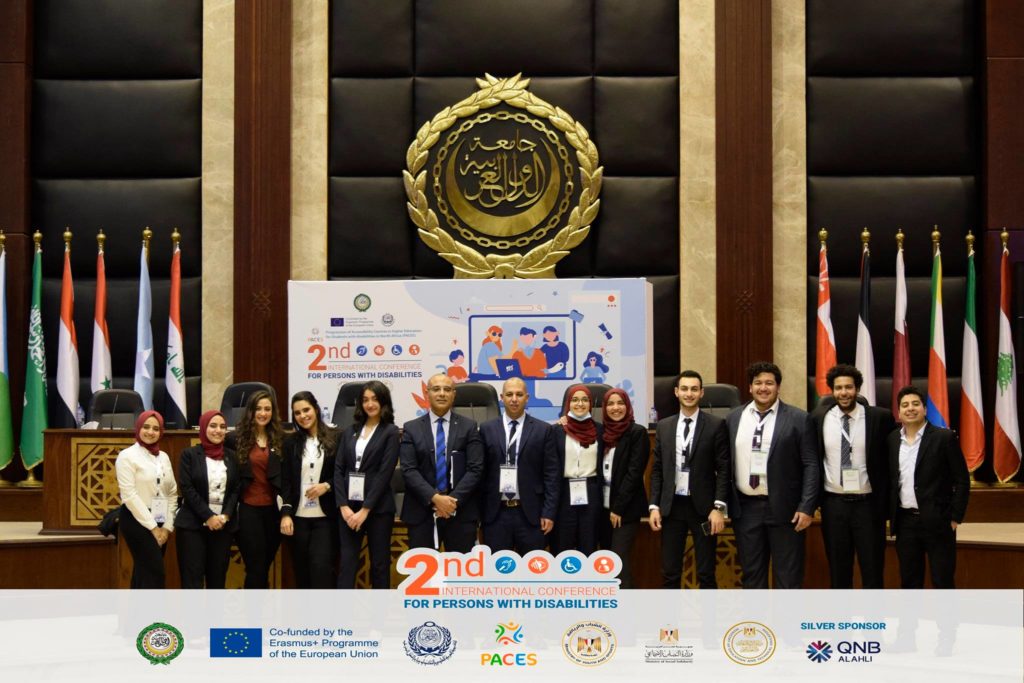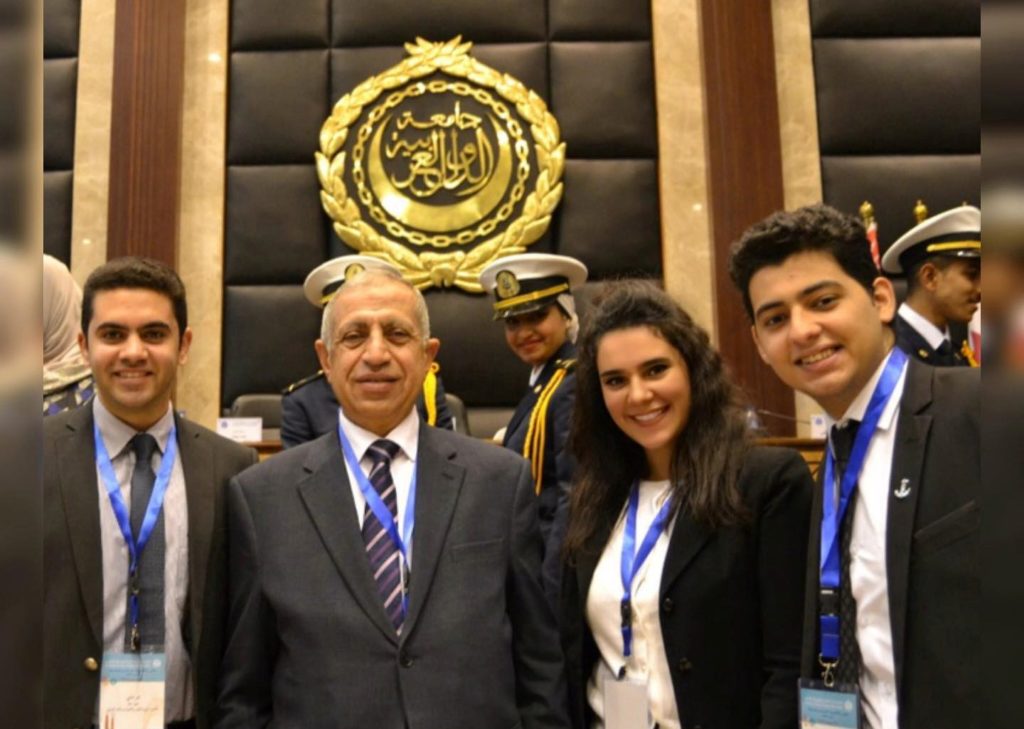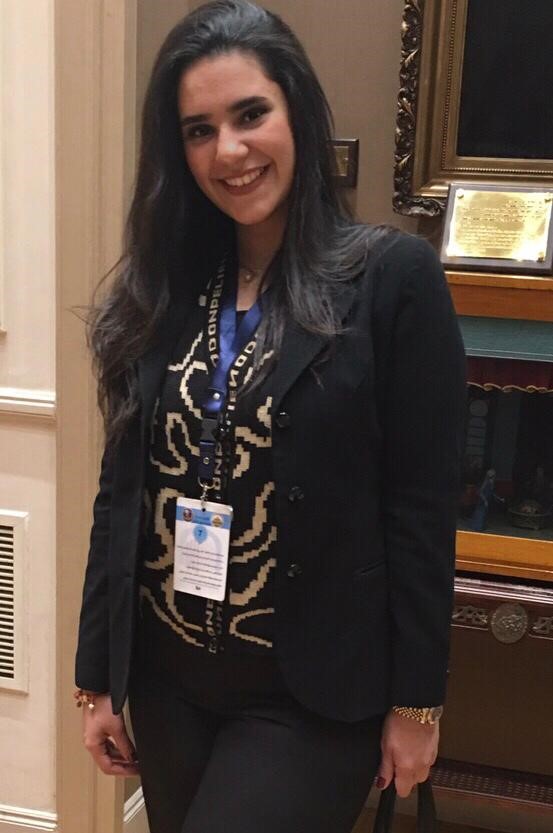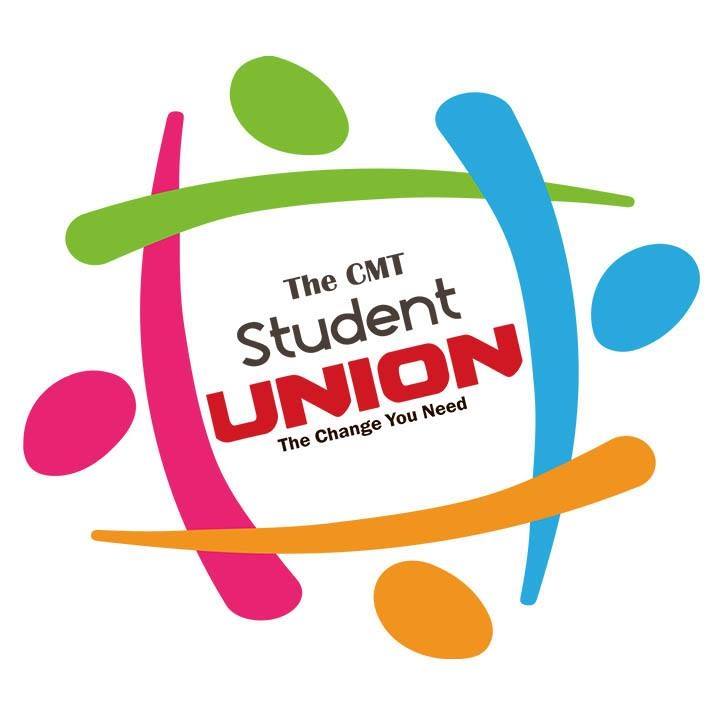Journalist: Mayar Hisham
Editor: Mahmoud Mansi
About the Interviewee:
While the concept of leadership has been applied through many different perceptions, the definition from which these perceptions have been drawn remains the same. Some employers value the art of motivation over organization, others prefer integrity above other qualities. Each leader has his or her own special style of leading that helps them influence their surroundings. The following interview features Mayar Ahmed Mashaly, a 22-year-old student who presently holds the position of the President of the Student Union in the Academy (Miami Branch), Mayar is currently a student in the Faculty of Management and Technology and is in her 8th semester majoring in the Department of Political Science; and is aiming to build a career in the diplomatic sector. Mashaly has her own unique leading style that has allowed her to succeed in leading her teammates into representing an outstanding student union that has not failed to fulfil the needs of their students and their audience up to this day.

The Interview:
1. Mayar, as a young leader you might have a unique leadership style, can you tell us more about it?
The leadership style that I like to follow and apply is the democracy style, in what way you ask? Well, when I am given the responsibility of a team, I always tend to share the decision-making process with them. After all, an important general rule that a good leader must follow is listening, because my teammates and I both have a specific goal that we all need to work together to achieve, and that goal can only be reached by interacting, and listening to the ideas that every teammate has through weekly meetings; to discuss the agenda that we need to set up to reach that goal. One important factor that I always focus on is motivation, I sometimes often have one or two team members showing skepticism about some of the methods we follow to reach the goal; thinking that it is too difficult and/or impossible. I always try to motivate them by telling them to see this as a challenge that we must see through to the end, and that we will see how they all feel after completing a challenge that they originally thought was impossible to do. I would say that I depend highly on motivation when it comes to leadership, because we can use this motivation to extract good output and positive results.
Another thing that I do is to make sure our work environment is as calm and stress free as possible. Yes, there might be competition, which is good to an extent, so each teammate can try to give their best to aid the team, and it is what we call a friendly competition. In my opinion, I think a person will fail as a leader if he/she do not follow these points, someone who sees themselves as superior and neglects his/her teammates’ opinions as he/she sees fit, can never be able to maintain a good relationship with the team or reach any goals whatsoever. That is why the democratic leadership is the best way to lead without a doubt, because I know that as long as we listen and respect each other’s opinions, motivate each other, and work cohesively, we will reach our goal.
As we work towards our goal, we set an agenda together that every single member of the team had contributed to, this helps us all have a clear understanding of what each one of us is tasked to do. I tend to follow the (make your own union) strategy where I listen to what the students want us to do first before listing my own team’s objectives and tasks. Things such as the direction that the students want the union to follow, most anticipated actions (what tasks/goals they are waiting for us to achieve) are all vital information to help us reach our goal. Once we gather the data, we divide the tasks among each other depending on who is capable of doing what and who isn’t, the ‘who isn’t’ part is very important since this is usually where I interfere to see how I can help him/her do the task. For instance, if someone was assigned with making a presentation but lacks presentation skills, it is my duty to both help and guide him/her throughout the process of building while providing support and motivation. This is how I see leadership and this is the leadership style I believe in.
2. The university is always keen to generate new and diverse youth projects, how do you make sure projects and tasks stay on schedule?
The first important point here is time management. This should be an element present in every team, and not just teams, but in every single member in the team as well. After completing the first step; which is dividing the tasks among each other in accordance to who can be more capable in what task, we give ourselves a specific deadline aside from the original deadline. For example, if the deadline for the project/tasks was on Friday, we make our own deadline at Tuesday. This gives us time to revise, fix last minute mistakes, and provide us with the opportunity to add new thoughts and ideas that we might think of or come across once the deadline was met. So, to recap, the steps that we take to manage our time is as follows: we analyze the task to see who will take what, we assign a deadline aside from the original to submit all our work, and finally, we revise and check all the work submitted to make sure that all the tasks, mistakes, and ideas have been corrected and that the project is completely prepared for the final deadline.
3. How do you handle disagreements on your team?
I often tell my teammates to disregard their disagreements when a meeting starts, meaning that they need to separate their personal disagreements away from work. To be more descriptive, I always divide the ‘disagreement’ category into two parts, the first type is disagreement in opinions. In this type, we analyze the opinions/ideas one by one to determine their strengths and weaknesses, we can sometimes add these opinions/ideas together to make them more effective and to satisfy all teammates, otherwise, we introduce a voting system where we vote on the idea based on its analysis (which one is less time consuming, has less risks, is more suitable for the goal etc.).
Now the second type of disagreement is personal arguments between a teammate and another teammate. In this case, I approach the situation by applying one of two options, the first as mentioned earlier, I tell my teammates to disregard any personal disagreements they have before the meeting starts. If that does not work out the way I hoped for, I apply my other option which is separating each of the two disagreeing members from each other; in a way that each has the lowest interaction possible with the other, that includes conducting meetings separately where I meet each one of the two alone. Aside from these two options, I just try to communicate with the two teammates to see what is causing the discomfort and try to fix it, for this method you need to have a lot of patience. If that does not work either, I set up rules that must be applied and followed by all teammates throughout the working process, where if any of the rules are broken, I can actually take action based on the situation at hand.
An experience that I had that fall under this category/topic was when two head committees had so many disagreements to the point that it was impossible to get any work done. In this situation, I had no choice but to separate them from each other completely. I would conduct meetings with each separately to minimize their engagement. Certainly, there were times when both heads needed to interact (compulsory group meetings) for the sake of the goal, that’s when I take it in me to meet them each before the said meeting and tell them calmly to set their arguments aside; as to not impact the group’s work progress. I prefer other ways in handling such disagreements, but sadly, some situations call for a strong action such as separation.
4. Give an example of when you used analytical techniques to design solutions to solve problems.
Most of the problems I solved were situations where someone came to me because they felt lost in a task, or had an emergency and needed help handling the rest of his/her task etc. If you mean problems within the team, then I must apologize because I can’t seem to remember a certain situation; because of how many problems I faced overall. What I can do is tell you how I handle them. The first thing I do is listen to the problem and note down pointers to myself that summarizes the whole dilemma, I then start to list down all the possible solutions and alternative options that can help solve the problem. I can sometimes consult others who might have more experience handling complications related to the issue; for the possibility that he/she might be able to give me an advice or some insights, that can help open my mind to more solutions for the given problem.

5. One of the essential roles of any leader is to communicate. How do you prepare for your presentations?
Gratefully, I can safely say that I have good presentation skills thanks to my school/college assignments, projects, and tasks. Usually in these projects, I was always assigned as the team leader; which helped me prepare for this leadership position that I am presently in. Let me tell you about one of my biggest presentations that I had to make in my current position. I was working on a project for the UNHCR (The United Nations Refugee Agency); which was about encouraging female refugees and providing them with ways on how they can work, and market their products using social media. The first step I took to prepare for this project involved going through an intense round of research; to develop unique steps to present, all while keeping in mind that my speech/project has to be suitable for all ages, since the refugees can vary with some age groups being 60 and above while others being 40 or younger. So, when you think about it, I will basically be explaining things from scratch, because most of these ages are not used to the technologies and social media management like those who are 20 and younger, not to forget the differences in the educational level as well.
My next step was to research the products that the refugees are attempting/trying to sell, I also made sure not to use any difficult synonyms or words that could confuse my audience. Additionally, I also provided examples related to every criterion or topic I discussed, and recommended the best social media platforms to use for the marketing process, along with why them specifically, their advantages, their disadvantages, and how to use them. I also gave examples of successful stories about women who used such platforms (and social media in general) to sell their products; to motivate the audience with proof to show them that they have a big chance in success. After the presentation, I await the attendants’ questions and re-explain parts that might have not been fully understood by some.
6. What was a difficult decision you had to make as a leader, and how did you come to that decision?
I remember a very difficult situation in the past; where there was one member in the group that nobody wanted and completely refused to work with, despite the fact that this person had the motivation and intention to put his full effort in working. Of course I simply cannot kick him out of the group for such a ridiculous reason, even with all the teammates voting to exclude him because of both personal reasons, and their belief that his type of personality is not capable of working with a team. Just like I mentioned in the disagreement question above, I had to separate him from the rest of the group, with all his interactions being fully with me and no one else.
7. Give us an example of a time when you had to deal with a difficult co-worker. How did you handle the situation?
Thankfully I did not meet someone like that until today, I always made sure to adapt to situations if I were to notice someone who might fall under that category. I tend to tell myself not to stress over it since it is mostly temporary interactions and that dealing with this person will not last, that’s how I usually manage to cope with difficult people that I come across.
8. Was there a time when you struggled to meet a deadline? Tell me about it. Also, could you Give an example of a time when you were trying to meet a deadline and you were interrupted and did not make the deadline? How did you respond?
Not really, thanks to the steps my teammates and I take to meet our deadlines as mentioned in question 2, I was always able to avoid last minute submissions. But if you would like to know how I would react if such a situation was to happen, I would either attempt to negotiate a deadline extension with my superiors for an extra day or two, or I would accept the situation as it is and use it as a motivation and a reminder for myself to never allow myself or my teammates to reach such a struggling point. I will also analyze the situation to see what led to this mistake, who caused it, what factors affected it, and then take necessary steps to make sure that we always submit on time.
9. When there’s a decision for a new critical process, what means do you use to communicate step-by-step processes to ensure other people understand and complete the process correctly?
The first thing I see necessary in this situation is; the fact that I have to be the one to fully comprehend this new process first, because if I didn’t understand it; I wouldn’t be able to explain it properly and expect my teammates to understand. Once I have fully grasped the situation, I then explain the circumstances to each teammate one by one along with listening to what each teammate understood and provide them with their designated tasks, I will also remain by their side until I have made sure that they completely understand the situation and what they need to do before moving on to the next teammate. As long as me, the leader, fully recognize the situation with no complications whatsoever, then I will be able to provide each teammate with the necessary intel to make sure that everyone in the team understands the situation; and that such new changes will not in any way, shape, or form hinder our progress.


